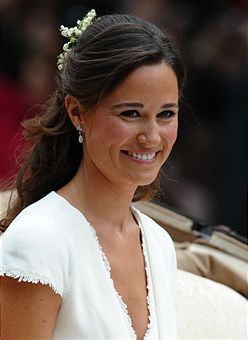 Where once the British set out for new fields to conquer, they now set out for new
cultural nadirs to reach. And it must be admitted that, in the latter search, they show considerable ingenuity as well as determination. In the field of popular vulgarity they are unmatched in the
world. Just when you think that their childish lavatorialism can descend no further, along come their future Queen’s sister’s buttocks to prove you wrong. No feeling for the person to
whom the buttocks belong (if ownership is quite the relationship one has to one’s buttocks), no sense of national or personal dignity restrains them. The British are a nation of playground
sniggerers who insist, in the name of freedom of expression, that their sniggers not only be heard but broadcast. They are like children who think excretion the best joke in the world and who are
in the process of discovering sex.
Where once the British set out for new fields to conquer, they now set out for new
cultural nadirs to reach. And it must be admitted that, in the latter search, they show considerable ingenuity as well as determination. In the field of popular vulgarity they are unmatched in the
world. Just when you think that their childish lavatorialism can descend no further, along come their future Queen’s sister’s buttocks to prove you wrong. No feeling for the person to
whom the buttocks belong (if ownership is quite the relationship one has to one’s buttocks), no sense of national or personal dignity restrains them. The British are a nation of playground
sniggerers who insist, in the name of freedom of expression, that their sniggers not only be heard but broadcast. They are like children who think excretion the best joke in the world and who are
in the process of discovering sex.
Of course, vulgarity has always played a large part in British culture; and this will give rise to the ’twas-ever-thus argument with which the British intelligentsia reacts to any unpleasant phenomenon in contemporary society that is drawn to their attention: for if everything was always the same, nothing is anything to worry about. In this instance, ’twas ever thus means that do not have to court the ridicule of your peers by being thought prudish or blimpish. Best, then, not to protest, or even to join in.
Vulgarity is valuable in a culture when it serves to puncture pretension, when it recalls the powerful, the cultivated, the aesthetes and the intellectuals to their fundamental identity with the rest of mankind. Gillray, in his treatment of royalty, was extremely vulgar; for example, his famous cartoon, Fashionable Contrasts; – or – the Duchess’s Little Shoe Yielding to the Magnitude of the Duke’s Foot was about as sexually suggestive, and deflationary of pretension and ridiculous rhetoric, as it is possible for a cartoon to be. But there are important differences between the vulgarity of Gillray and that of most of the commentary on Miss Middleton’s buttocks.
First Gillray was very funny (though, oddly enough, few visitors to the most recent exhibition of his work at the Royal Academy laughed, as if Art and Laughter were polar opposites or even enemies); second his work was of intrinsic artistic value; third, he was almost always making a serious, if not necessarily correct or accurate, point; and fourth, he was working in a society that valued elegance and refinement, such that his vulgarity was in genuine contrast to something else. But where vulgarity is without wit, inartistic, pointless and in contrast to nothing because of its own complete cultural dominance, it is merely a manifestation of shallowness and stupidity. And since there is no reason to suppose that the contemporary British are less intelligent than their forebears, or than the people of other nations, their vulgar present-day culture consists of, and requires, the willing suspension of their intelligence. In other words, it is ideological.
One of the interesting features of the commentary, both printed and on the internet, on the glory of Miss Middleton’s buttocks was the highly Americanised language (and spelling) in which it was couched. If it had emerged from a trailer park in Iowa it would hardly have been any different. The conclusion is clear: the British are now a nation of trailer-trash Americans. They have the vices of the Americans, but none of their virtues.
When Orwell wrote his famous essay on the postcards of Donald McGill, he called them ‘a harmless rebellion against virtue;’ they were always funny and sometimes genuinely witty. He concluded, I think rightly: ‘The corner of the human heart that they speak for might easily manifest itself in worse forms, and I for one should be sorry to see them vanish.’ The corner has become, in Britain, nearly the whole. There is nothing in modern British vulgarity that I would miss if it were to disappear from the face of the earth.
UPDATE: CoffeeHousers who asked for a more apt illustration will be pleased to know that Thursday’s Daily Telehraph has risen to the challenge on its front page:







Comments